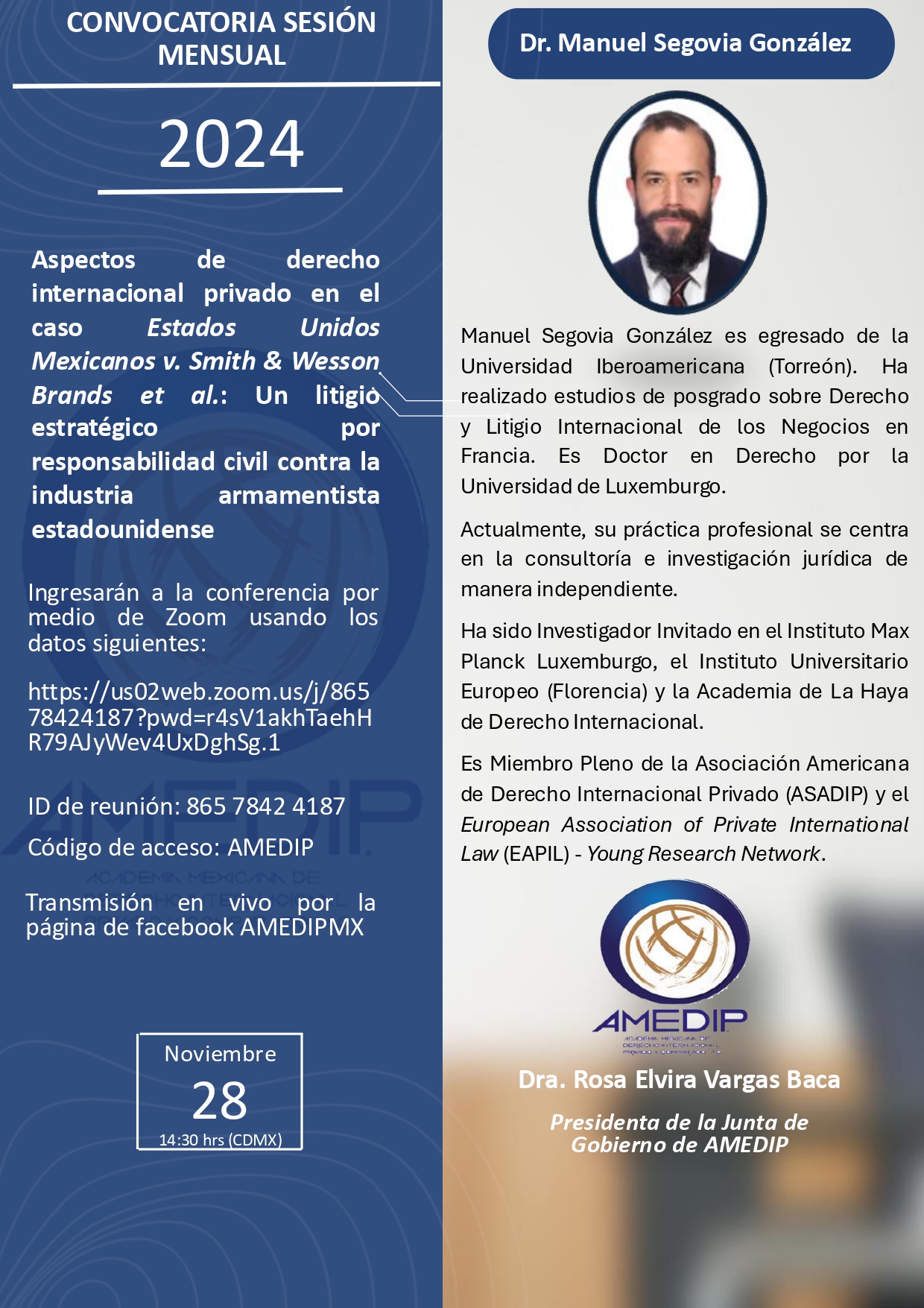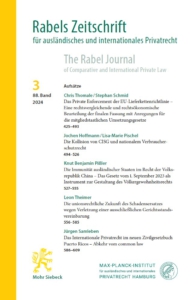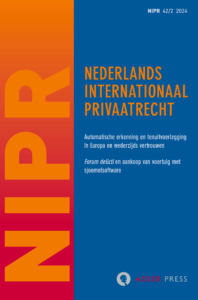AMEDIP’s upcoming webinar: Private international law aspects in the case Estados Unidos Mexicanos v. Smith & Wesson Brands, et al. (28 November 2024 – in Spanish)

The Mexican Academy of Private International and Comparative Law (AMEDIP) is holding a webinar on Thursday 28 November 2024 at 14:30 (Mexico City time – CST), 21:30 (CET time). The topic of the webinar is the private international law aspects in the case Estados Unidos Mexicanos (Mexico) v. Smith & Wesson Brands et al. and will be presented by Dr. Manuel Segovia González (in Spanish). We have previously reported on the case here.

 Issue 3 of RabelsZ 2024 has just been released. It contains the following articles:
Issue 3 of RabelsZ 2024 has just been released. It contains the following articles:
